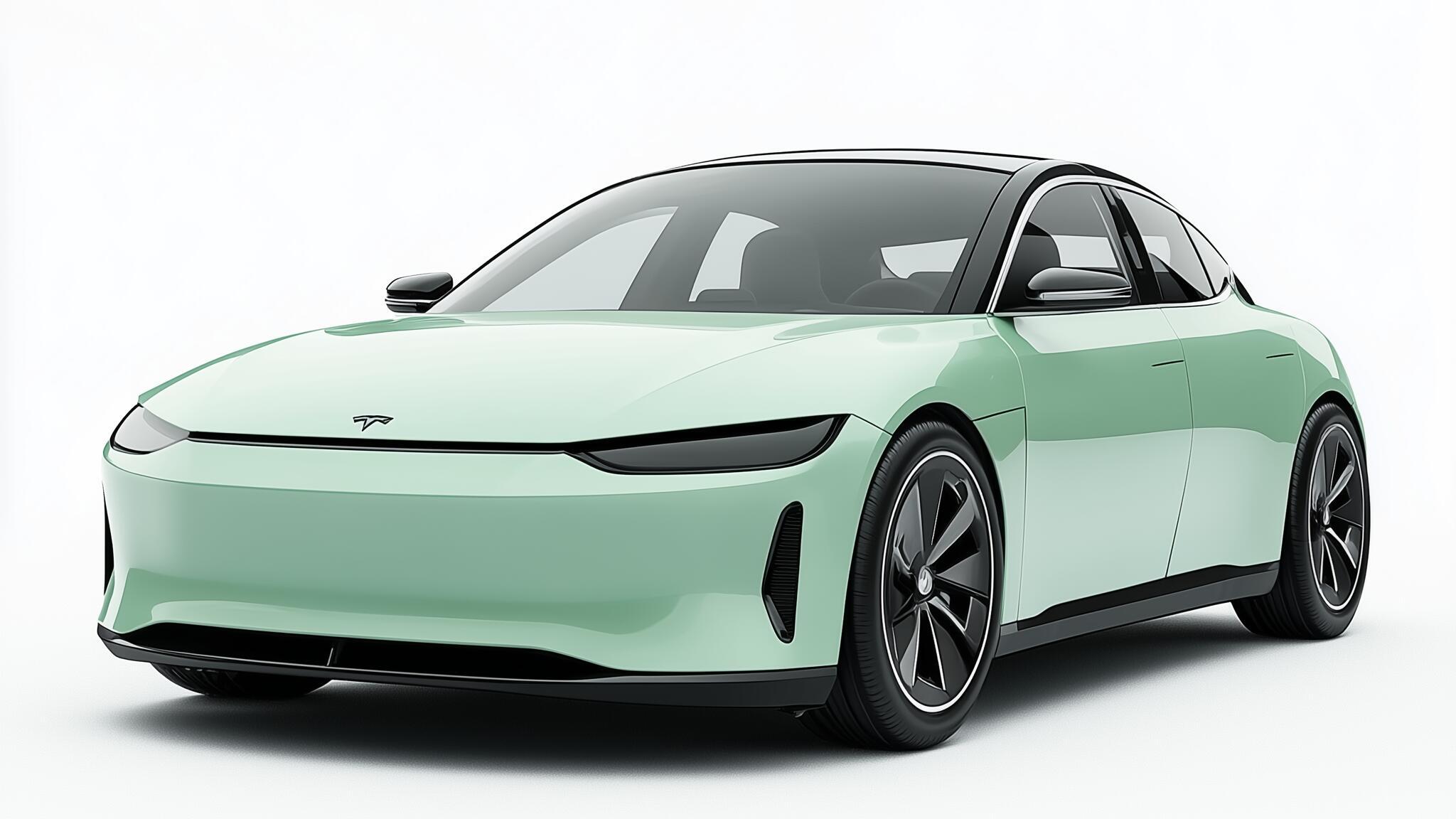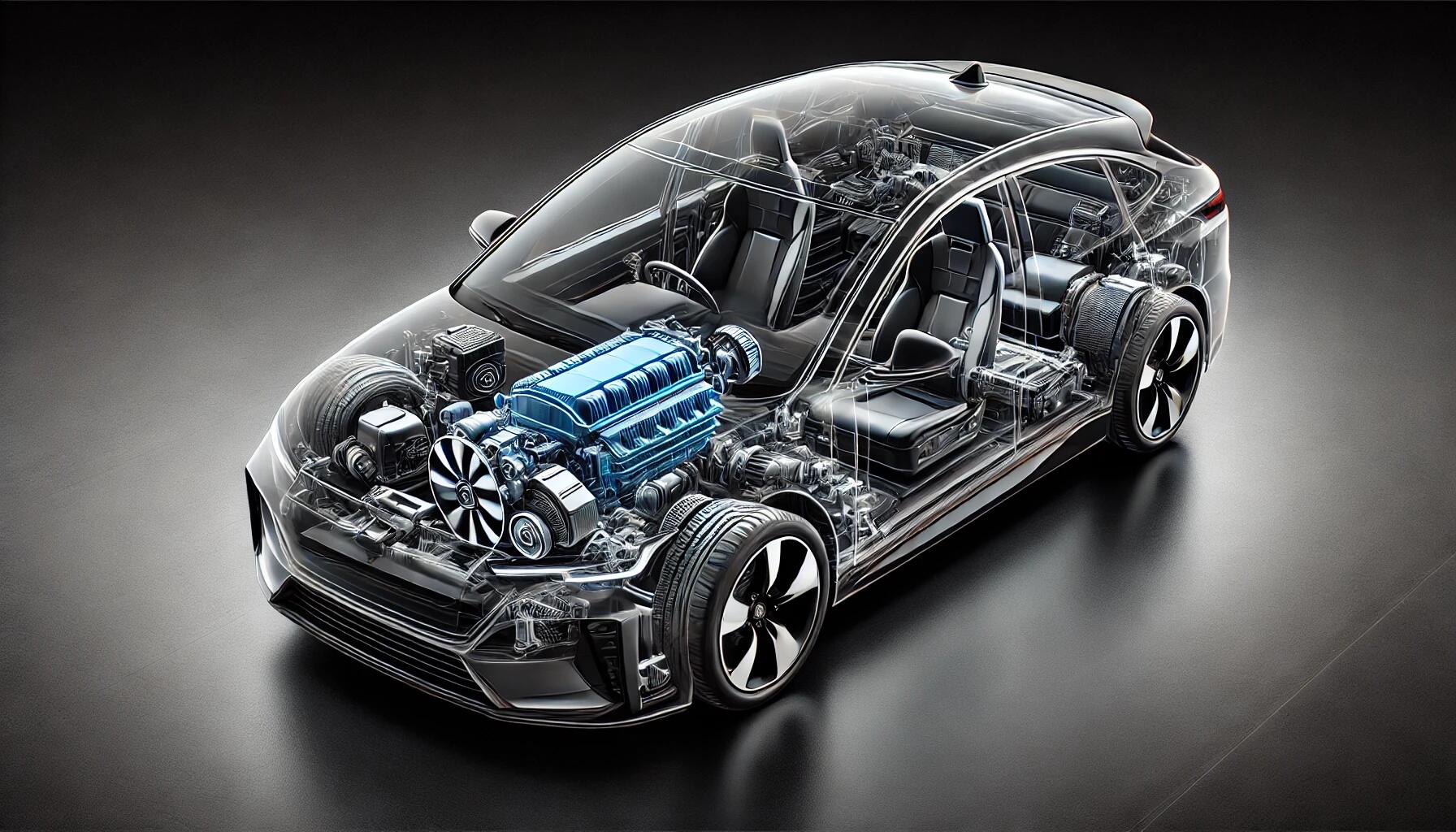Should I Buy an EV?
Aug 17As more and more people embrace electric vehicles (EVs) there is a growing interest amongst drivers to transition from internal combustion engine (ICE) cars to eco-friendly electric options. Before making the switch and choosing the vehicle that aligns with your lifestyle and requirements, it's crucial to weigh the pros and cons of owning an EV versus a gas powered car. Various factors such as; fuel efficiency rates, initial costs involved in purchasing and powering the vehicle, maintenance requirements, travel expectations within your region and environmental impact, are all considerations that factor into this decision making process. Lets delve deeper into these aspects for clarity.
Comparing Fuel Efficiency
EVs
-
EVs are known to be more fuel efficient compared to cars as they utilize energy effectively to power motion forward with their efficiency measured in "mileage per kilowatt hour" (mi/kWh) rather than the traditional "mileage, per gallon" (MPG).
-
EVs frequently incorporate braking mechanisms that capture energy during deceleration to enhance their efficiency.
-
Electricity expenses differ when charging a vehicle compared to refueling a gas powered car; it is typically more cost effective to charge an EV due to the availability of off-peak rates to reduce costs.
-
Public charging stations can vary in terms of pricing – some are free while others may charge a fee; however, certain stations provide membership options that can lower the cost, per charge. A number of employers also provide charging stations for their employees
Regular Vehicles
-
Traditional vehicles consume fuel by burning gasoline or diesel to power their engines and achieve miles, per gallon (MPG) which varies based on the engine size and driving circumstances. Although contemporary gasoline fueled cars have improved in efficiency over time, EVs remain more energy efficient than their gas powered counterparts.
-
Gas prices fluctuate depending on your location and are impacted by market factors, such as supply and demand dynamics and global oil prices trends around the world these days. Even though cars are becoming more efficient in terms of fuel consumption, it can still cost more to fill up a gas tank compared to charging a vehicles battery in places when gas prices are particularly high.
Summary
EVs generally use energy efficiently than traditional cars do fuel consumption and this can result in substantial cost savings. EVs tend to be more economical to refuel than gasoline cars; this can vary based upon local electricity prices and the accessibility of charging stations in the area. However, while EVs are generally cheaper than their gas counterparts, the difference maybe much smaller than anticipated given the rising costs of electricity as demand increases. If you are unable to take advantage of free charging, or off-peak electricity usage, the costs of charging could in fact outweigh gas prices.
Comparing Upfront Costs
EVs
-
EVs generally come with a higher price tag compared to gasoline powered vehicles mainly because of availability along with higher costs involved with the more advanced technology they use, especially, the battery systems. However, federal or local incentives and tax rebates are frequently available to offset this price gap.
-
Saving money in the long run is a benefit of EVs as they can lead to reduced overall expenses through fuel savings and lower maintenance costs, especially when combined with any government incentives available.
Regular Vehicles
Initial costs are typically lower with gasoline cars vs EVs; there is also a much wider selection of models available, across different price ranges.
Summary
In the end, regular cars still cost less upfront on average compared to EVs, but over time EVs could actually end up being more cost effective considering the savings on fuel and maintenance expenses. As the EV market expands, there is an expectation to see prices drop down to regular vehicle levels
Comparing Maintenance Costs
EVs
-
EVs have fewer parts that deteriorate over time compared to regular cars; for instance oil filters and spark plugs are not needed in EVs, which results in reduced maintenance expenses and less frequent servicing requirements.
-
One significant cost for EVs may be the need to replace the expensive batteries, however, it's worth noting that the majority of EV batteries typically endure for years (around 10 years on average or even longer) and usually come with warranties.
Regular Vehicles
Regular upkeep is necessary for gas powered vehicles as they need regular oil changes and transmission fluid replacements along with frequent maintenance tasks compared to EVs. Nonetheless, the availability of mechanics and repair costs are typically more cost effective.
Summary
EVs need less maintenance and fewer repairs than conventional cars, leading to reduced overall maintenance expenses in the long run. However, if a major mechanical issue should occur and not covered by warranty, the cost of repairs for the EV vs regular vehicle, could be more due to specialized part requirements and mechanics.
Comparing Regional Travel
Living in city areas includes the benefit of infrastructure availability, but what happens when you want to plan a vacation to regional areas, or you already live in a regional area.
EVs
-
The presence of charging stations varies depending on your location. Cities usually have a number of stations compared to regional areas where coverage may still be limited. When traveling longer distances in an EV, it is essential to plan ahead to guarantee access to fast chargers throughout the journey.
-
Charging Duration; Fast chargers can quickly restore the majority of a battery's charge in less than an hour, however, charging at home is a longer process and may require several hours to reach a full charge.
-
Technology; some charges have specific plug types (eg. Tesla) which may not be compatible with all brands. It is important for EV owners to be aware of any limitations and/or carry an adaptor to ensure compatibility with as many different chargers as possible
Regular Vehicles
- Gas stations can be found easily in both cities and regional areas, making this option convenient for re-fueling gas powered vehicles whenever traveling long distances. Generally, gas prices are slightly more expensive in regional areas which should be taken into account when considering finances for your travel.
Summary
Although gas stations are widely accessible everywhere, there is continual growth with the EV charging network. Planning ahead might be necessary for journeys with an EV, but urban drivers should still have ample choices for charging their vehicles.
Comparing Environmental Impacts
EVs
-
EVs are considered to be environmentally friendly as they do not emit any gases and are particularly beneficial in regions where renewable energy sources power the electricity grid to reduce carbon dioxide emissions that drive climate change.
-
Issues surrounding battery manufacturing are a ongoing cause for concern in the EV sector; specifically the extraction of lithium and other metals. With advancements in recycling techniques and battery efficiency improvements, efforts are being made to address these challenges.
Regular Vehicles
-
Gas fueled vehicles release greenhouse gases and harmful substances when in use, which leads to air pollution and climate change concerns due to their emissions.
-
When comparing cars of any kind, it is important to note that regular cars release emissions over their entire lifespan.
Summary
EVs have a lower environmental impact compared to traditional cars in everyday use, however, it is crucial to take into account the environmental consequences of battery manufacturing and disposal as well. Throughout the lifespan of the vehicle, EVs remain the more sustainable choice.
Overall Comparing EV Benefits vs Drawbacks
EV Benefits
-
Saving on fuel expenses is possible with electricity generally being a lower cost option compared to gasoline for operating vehicles.
-
Reduced maintenance expenses are a benefit of EVs as they have fewer components in motion and need less frequent maintenance.
-
EVs offer advantages by emitting no tailpipe pollutants and thus helping to lower your carbon impact on the environment.
-
Government incentives are often available in areas providing tax rebates and perks to assist with reducing the expenses of acquiring an EV.
EV Drawbacks
-
EVs typically come with a higher price tag when compared to traditional gas powered cars.
-
Limited availability of charging facilities in many locations means that even though charging options are increasing overall, people in rural areas and those traveling long distances may still need to plan their trips carefully to accommodate for this limitation.
-
Replacing the battery in a vehicle can sometimes be an expensive part of owning it for a long time.
Summary
EVs have many benefits compared to gasoline vehicles when it comes to saving fuel and being eco-friendly while also being cost effective to maintain. The decision between choosing an EV or a traditional car typically depends on lifestyle choices and how and where you drive your vehicle. An EV could be a solid choice if you mainly drive short distances, in city or suburban environments. For individuals who often journey over extended distances or reside in regional areas with few charging facilities available, a conventional gas vehicle might prove to be a more feasible option (for now).
In the future as technology progresses and the infrastructure for EVs grows bigger, a lot of the issues associated with owning an EV are likely to decrease which will make these cars more practical and appealing to a wider range of drivers.

